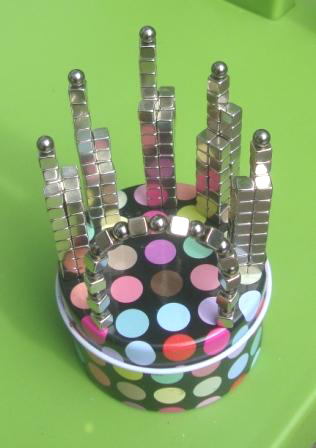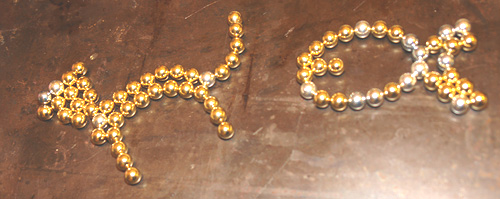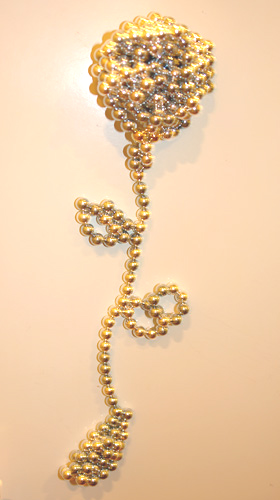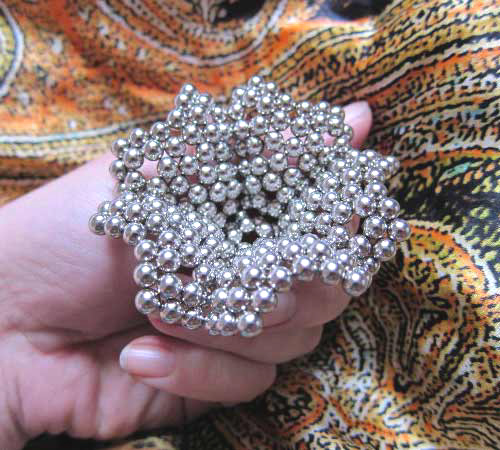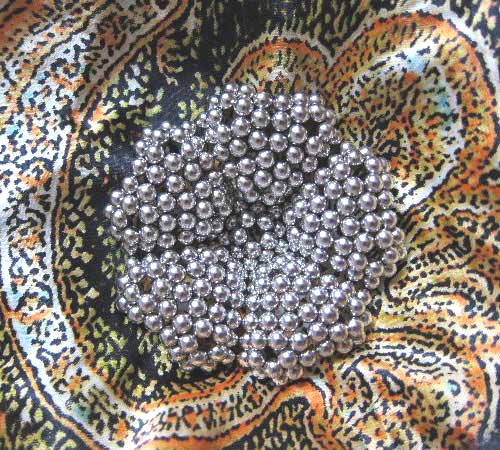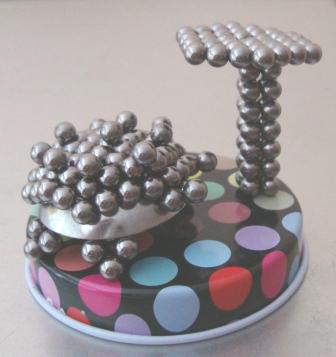Neodymium Magnets
Neodymium magnets, made from a powerful alloy of neodymium, iron, and boron, are the most commonly used type of rare-earth magnets. They possess exceptional strength and are widely available for commercial use. In the United States, these magnets are popularly known as buckyballs. Hovewer, “buckyballs” is an unprotected brand name owned by Maxfield and Oberton Holdings LLC. Neoballs, a similar magnetic product produced by Zen Magnets, emerged as a primary competitor to buckyballs.
Health Concerns
These toys, being a collection of small yet powerful magnetic balls, can pose significant health risks if swallowed. Neodymium magnets are powerful enough to attract each other through the solid objects, like the walls of the digestive tract. Sometimes the magnets can even perforate digestive tract walls, which can be fatal without urgent medical intervention.
The U.S. Centers for Disease Control reported 33 cases necessitating surgery and one death as of 2010. Swallowing incidents have involved both toddlers and teenagers, with some teens using the magnets to simulate tongue piercings. However, these numbers remain relatively low compared to the tens of thousands of toys sold. While the magnets are marketed to adults, warning labels highlighting their danger to children are present.
Several countries have banned small separable magnet sets due to these risks. In the United States, prior to 2014, numerous reports surfaced regarding children and teenagers accidentally ingesting these tiny magnetic balls. In 2012, Senator Kirsten Gillibrand urged the Consumer Product Safety Commission to ban the sale of these hazardous high-powered magnets.
USA
Following a series of legal battles, neodymium magnetic toys were initially banned across the United States. However, this ban was later overturned in 2016. Nevertheless, the Consumer Product Safety Commission maintains their stance on permanently banning neodymium magnets and has pursued lawsuits and petitions. In response, neodymium magnet manufacturers have proposed implementing new safety standards, but a consensus has yet to be reached. As a result of the controversy, certain retailers like Amazon agreed to stop selling neodymium magnets in 2016. After the ban was lifted, these products eventually became available for purchase again.
Canada
Canada banned the sale of magnetic balls due to the ingestion risk, following the precedent set by the United States. The Canadian Government argues that swallowing these magnets can lead to lifelong health problems, and even cause death. Despite the ban being lifted in the US since 2016, it remains in effect in Canada.
Australia and New Zealand
In 2012, Australia implemented a permanent ban on the sale of neodymium magnets, following the ban in New South Wales. New Zealand also prohibited small magnetic balls due to the health risks they pose when ingested, following incidents of injuries within the country.
However, the New Zealand ban only applies to the sale of these magnets for personal use. They can still be found in educational institutions like schools and universities for teaching purposes, as well as being used for industrial and construction applications



